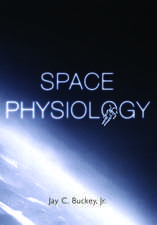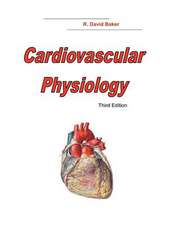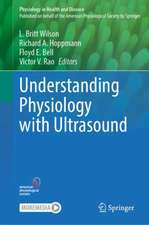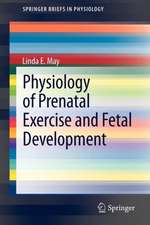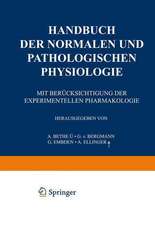Digestive Intelligence: A Holistic View of Your Second Brain
Autor Dr. Irina Matveikovaen Limba Engleză Paperback – 6 iun 2014
Digestive Intelligence tells the fascinating story of how our digestive systems are the centre of our bodies’ second brain and how we think and live our emotions via our stomachs.
Not surprising when you consider there is something equivalent to the size of a village football pitch hiding inside our bellies – that’s the incredible magnitude of our digestive systems. Dr Matveikova answers the obvious questions: “How?” and “Why can this be so?” by explaining, in straight forward layman’s language, that the digestive system contains more than one million neurones, identical to those in the brain and is responsible for producing 90% of the body’s hormone, serotonin, the all-important hormone which makes us feel happy and full of wellbeing. It follows that, if our stomach is “out of sorts” we feel irritable and lacking in energy; and those feelings block our intellectual productivity, disorientate us and completely change our thought patterns and physical processes.
Not surprising when you consider there is something equivalent to the size of a village football pitch hiding inside our bellies – that’s the incredible magnitude of our digestive systems. Dr Matveikova answers the obvious questions: “How?” and “Why can this be so?” by explaining, in straight forward layman’s language, that the digestive system contains more than one million neurones, identical to those in the brain and is responsible for producing 90% of the body’s hormone, serotonin, the all-important hormone which makes us feel happy and full of wellbeing. It follows that, if our stomach is “out of sorts” we feel irritable and lacking in energy; and those feelings block our intellectual productivity, disorientate us and completely change our thought patterns and physical processes.
Preț: 49.75 lei
Preț vechi: 68.86 lei
-28% Nou
Puncte Express: 75
Preț estimativ în valută:
9.52€ • 9.90$ • 7.86£
9.52€ • 9.90$ • 7.86£
Carte disponibilă
Livrare economică 28 martie-09 aprilie
Livrare express 07-13 martie pentru 37.12 lei
Preluare comenzi: 021 569.72.76
Specificații
ISBN-13: 9781844096435
ISBN-10: 1844096432
Pagini: 172
Ilustrații: black & white illustrations, figures
Dimensiuni: 152 x 229 x 13 mm
Greutate: 0.29 kg
Editura: Inner Traditions/Bear & Company
Colecția Findhorn Press
Locul publicării:United Kingdom
ISBN-10: 1844096432
Pagini: 172
Ilustrații: black & white illustrations, figures
Dimensiuni: 152 x 229 x 13 mm
Greutate: 0.29 kg
Editura: Inner Traditions/Bear & Company
Colecția Findhorn Press
Locul publicării:United Kingdom
Notă biografică
Dr. Irina Matveikova is licensed in Medicine, Endocrinology and Clinical Nutrition by the University of Minsk (Belarus). She is also a certified expert in Eating Disorders Behaviour. She is the author of numerous articles concerning digestive health and nutrition in well-respected international medical journals and magazines and has also written a dictionary of medicinal plants (in five languages).
Extras
Your Second Brain
Sometimes people joke about there being two brains: a female one inside the head and a male one inside the trousers. (The same comparison is made of women’s and men’s hearts, too). If you think that in this chapter I’m going to talk about this supposed second brain – the pride and vanity hidden inside your underwear - then you’re mistaken. Although I do understand why that kind of ‘brain’ is famous: its decision-making power is so strong that it isn’t affected by the mental ‘filters’ of cool rationality, common sense and logic.
What I’m going to talk about in this book is another brain: our digestion. It is not as glam- orous and interesting as our sex drive but can be just as wild and unpredictable; and we use it far more because our digestive brain goes into action several times every day.
The intestine is not the part of our anatomy we are most passionate about or one that in- creases our pulse rate. No famous poet has written an ode to it and normally artists are not in- spired by the ‘beauty’ of the digestive system. Quite the opposite in fact. The most common view of the gut is that it is an ugly body part which looks a bit like a snake, smells badly and sometimes makes socially unacceptable and embarrassing noises.
However, I promise you that we have a true brain in our intestine and its neuronal function is very similar to the brain in our heads which has the capacity to perceive beauty. The digestive system has its own extensive network of neurons, which are located between the two muscular layers on its walls. The structure of these digestive neurons is identical to that of the cerebral neurons: both release the same neurotransmitters, hormones and chemical molecules.
I want to introduce you to the enteric nervous system (ENS), our ‘second brain’. This is not a metaphor; it is the official name accepted by the medical profession.
The importance of the ENS was only demonstrated relatively recently with the publication of the work of Professor Michael Gershon, chairman of the Department of Anatomy and Cell Biol- ogy at Columbia University, New York, and the forerunner of the new science of neurogastroen- terology. This new area of speciality studies the symptoms of psychosomatic upsets which have a gastrointestinal expression and relates them to the central nervous system. Doctor Gershon has spent thirty years of his scientific career on an in-depth study of the attitude and behaviour of the human guts, and he has confirmed that our nervous digestion system has its own cerebral activity and intelligence. His book published in 1999 was a significant step forward in informa- tion on the ENS compared with the existing medical and scientific understanding of the subject at the time.
According to new data, the figure for the total number of neurons found in the small intestine is around a hundred million. This figure represents a considerably higher number than the neu- rons in the spinal cord. The brain in our gut is the main production line responsible for produc- ing and storing the chemical substances called neurotransmitters, most of which are identical to those found in the central nervous system (CNS), such as acetylcholine, dopamine and sero- tonin. These substances regulate our moods and our emotional and psychological well-being; and form a group of essential substances ensuring correct communication between the neurons and the body’s warning system. They represent the ‘words’ in the neuronal language.
The presence of such a wide variety of neurotransmitters in our intestines is a clear indication of the complexity of the rich digestive language and its ability to carry out neuronal functions and express its own emotions.
Gershon revealed that 90% of serotonin (the famous ‘happiness’ or ‘feel-good’ hormone ) is produced and stored in the intestine where it regulates peristaltic movements and sensory trans- mission. Only the remaining 10% of the body’s serotonin is synthesised in the neurons of the central nervous system, i.e. in the higher brain.
This minimum amount of cerebral serotonin is of vital importance for human beings, and per- forms various functions, including regulating our mood (the calm ‘feel-good’ sensation), ap- petite, sleep and muscular contractions, and it intervenes in cognitive functions such as memory and learning. Serotonin is the ‘messenger of happiness’ and thanks to it the neurons can communicate with each other, releasing it and capturing it again as needed .
Before this revelation, the scientific world did not pay much attention to this aspect of the in- testines and did not appreciate the nerve network which runs through them. The general view was that the decisions made by the upper brain were dominant and that its influence on the di- gestive system was one-way i.e. that the process was directed downwards from the brain. The scientific observations of Professor Gershon, however, now lead us to think that influence travels in both directions; that there is constant communication between the two brains : the one inside our skull and its twin down there in our gut.
I can assure you that the relationship between the two brains, which involves the hormonal, metabolic and emotional levels, is very complex and we could even call it “intellectual”; it is also normally quite democratic and mutually respectful.
Sometimes people joke about there being two brains: a female one inside the head and a male one inside the trousers. (The same comparison is made of women’s and men’s hearts, too). If you think that in this chapter I’m going to talk about this supposed second brain – the pride and vanity hidden inside your underwear - then you’re mistaken. Although I do understand why that kind of ‘brain’ is famous: its decision-making power is so strong that it isn’t affected by the mental ‘filters’ of cool rationality, common sense and logic.
What I’m going to talk about in this book is another brain: our digestion. It is not as glam- orous and interesting as our sex drive but can be just as wild and unpredictable; and we use it far more because our digestive brain goes into action several times every day.
The intestine is not the part of our anatomy we are most passionate about or one that in- creases our pulse rate. No famous poet has written an ode to it and normally artists are not in- spired by the ‘beauty’ of the digestive system. Quite the opposite in fact. The most common view of the gut is that it is an ugly body part which looks a bit like a snake, smells badly and sometimes makes socially unacceptable and embarrassing noises.
However, I promise you that we have a true brain in our intestine and its neuronal function is very similar to the brain in our heads which has the capacity to perceive beauty. The digestive system has its own extensive network of neurons, which are located between the two muscular layers on its walls. The structure of these digestive neurons is identical to that of the cerebral neurons: both release the same neurotransmitters, hormones and chemical molecules.
I want to introduce you to the enteric nervous system (ENS), our ‘second brain’. This is not a metaphor; it is the official name accepted by the medical profession.
The importance of the ENS was only demonstrated relatively recently with the publication of the work of Professor Michael Gershon, chairman of the Department of Anatomy and Cell Biol- ogy at Columbia University, New York, and the forerunner of the new science of neurogastroen- terology. This new area of speciality studies the symptoms of psychosomatic upsets which have a gastrointestinal expression and relates them to the central nervous system. Doctor Gershon has spent thirty years of his scientific career on an in-depth study of the attitude and behaviour of the human guts, and he has confirmed that our nervous digestion system has its own cerebral activity and intelligence. His book published in 1999 was a significant step forward in informa- tion on the ENS compared with the existing medical and scientific understanding of the subject at the time.
According to new data, the figure for the total number of neurons found in the small intestine is around a hundred million. This figure represents a considerably higher number than the neu- rons in the spinal cord. The brain in our gut is the main production line responsible for produc- ing and storing the chemical substances called neurotransmitters, most of which are identical to those found in the central nervous system (CNS), such as acetylcholine, dopamine and sero- tonin. These substances regulate our moods and our emotional and psychological well-being; and form a group of essential substances ensuring correct communication between the neurons and the body’s warning system. They represent the ‘words’ in the neuronal language.
The presence of such a wide variety of neurotransmitters in our intestines is a clear indication of the complexity of the rich digestive language and its ability to carry out neuronal functions and express its own emotions.
Gershon revealed that 90% of serotonin (the famous ‘happiness’ or ‘feel-good’ hormone ) is produced and stored in the intestine where it regulates peristaltic movements and sensory trans- mission. Only the remaining 10% of the body’s serotonin is synthesised in the neurons of the central nervous system, i.e. in the higher brain.
This minimum amount of cerebral serotonin is of vital importance for human beings, and per- forms various functions, including regulating our mood (the calm ‘feel-good’ sensation), ap- petite, sleep and muscular contractions, and it intervenes in cognitive functions such as memory and learning. Serotonin is the ‘messenger of happiness’ and thanks to it the neurons can communicate with each other, releasing it and capturing it again as needed .
Before this revelation, the scientific world did not pay much attention to this aspect of the in- testines and did not appreciate the nerve network which runs through them. The general view was that the decisions made by the upper brain were dominant and that its influence on the di- gestive system was one-way i.e. that the process was directed downwards from the brain. The scientific observations of Professor Gershon, however, now lead us to think that influence travels in both directions; that there is constant communication between the two brains : the one inside our skull and its twin down there in our gut.
I can assure you that the relationship between the two brains, which involves the hormonal, metabolic and emotional levels, is very complex and we could even call it “intellectual”; it is also normally quite democratic and mutually respectful.
Cuprins
Acknowledgements
Foreword by Yuyi Beringola
Preface
I. Your second brain
Curious facts about evolution
Out of control
Staying healthy and looking after yourself with complementary medicine is back in fashion Two-way emotional influence
The enormous hidden potential of your stomach
The digestive brain concept in Eastern philosophies
II. The virtues of the digestive system Are we hollow?
Digestive emotions
The T-bone steak and its journey
Is there such a think as a ‘delicate’ digestion?
III. Emotion and digestion. Irritable bowel syndrome Alternative treatments
Dietetic advice
Some practical hints
IV. A social taboo
V. The stomach
A short history
Anatomical and physicological cirtues
The ‘witch’s brew’
Emotions and the stomach
Stomach problems and complementary medicine
VI. The small intestine: a football pitch in your innards Strange names
Where does your cholesterol come from?
The intelligent ‘customs’ service
Leaky gut and what it leads to
VII. The colon and toxaemia
This is not a rubbish bag
The journey through your gut may be complicated Intestinal polyps
Brain activities and intestinal health
Auto-intoxication is a result of intestinal toxoaemia
VIII. Constipation. The ever-present shadow Personality and constipation
What is constipation?
The treatment
Laxatives Alternative advice Colon hydrotherapy
IX. Colon Hydrotherapy (CH): the MOT test for the body History of internal cleansing
CH nowadays
Colonic irrigation method
The MOT test for your body CH: General indications
CH: General contraindications CH and chronic disease
CH as an emotional link
X. Intestinal microflora: Myths and truths
What do we mean by intestinal microflora?
A whole world in our gut
How intestinal microflora is formed
Bacteria and their ‘social classes’
Why are intestinal flora and their ‘good’bacteria so essential and important in our lives? How do I know if my stomach had ‘good’ or ‘bad’ bacteria?
XI. Gastro-oesophagal reflux
Why do I have reflux?
Obesity, overweight, pregnancy, constipation, gases, flatulence What increases stomach acidity?
XII. The liver and the gall bladder
What causes bile retention and gall bladder problems? Cleansing and draining the liver
XIII. Ageing and digestion
Cellular ageing
Ageing is reversible
How to start your anti-ageing treatment Metabolic age
XIV. Breathing and digestion
Final comments
Bibliography
Foreword by Yuyi Beringola
Preface
I. Your second brain
Curious facts about evolution
Out of control
Staying healthy and looking after yourself with complementary medicine is back in fashion Two-way emotional influence
The enormous hidden potential of your stomach
The digestive brain concept in Eastern philosophies
II. The virtues of the digestive system Are we hollow?
Digestive emotions
The T-bone steak and its journey
Is there such a think as a ‘delicate’ digestion?
III. Emotion and digestion. Irritable bowel syndrome Alternative treatments
Dietetic advice
Some practical hints
IV. A social taboo
V. The stomach
A short history
Anatomical and physicological cirtues
The ‘witch’s brew’
Emotions and the stomach
Stomach problems and complementary medicine
VI. The small intestine: a football pitch in your innards Strange names
Where does your cholesterol come from?
The intelligent ‘customs’ service
Leaky gut and what it leads to
VII. The colon and toxaemia
This is not a rubbish bag
The journey through your gut may be complicated Intestinal polyps
Brain activities and intestinal health
Auto-intoxication is a result of intestinal toxoaemia
VIII. Constipation. The ever-present shadow Personality and constipation
What is constipation?
The treatment
Laxatives Alternative advice Colon hydrotherapy
IX. Colon Hydrotherapy (CH): the MOT test for the body History of internal cleansing
CH nowadays
Colonic irrigation method
The MOT test for your body CH: General indications
CH: General contraindications CH and chronic disease
CH as an emotional link
X. Intestinal microflora: Myths and truths
What do we mean by intestinal microflora?
A whole world in our gut
How intestinal microflora is formed
Bacteria and their ‘social classes’
Why are intestinal flora and their ‘good’bacteria so essential and important in our lives? How do I know if my stomach had ‘good’ or ‘bad’ bacteria?
XI. Gastro-oesophagal reflux
Why do I have reflux?
Obesity, overweight, pregnancy, constipation, gases, flatulence What increases stomach acidity?
XII. The liver and the gall bladder
What causes bile retention and gall bladder problems? Cleansing and draining the liver
XIII. Ageing and digestion
Cellular ageing
Ageing is reversible
How to start your anti-ageing treatment Metabolic age
XIV. Breathing and digestion
Final comments
Bibliography
Recenzii
"The work of professionals like Dr Matveikova is essential... showing us what we have chosen to ignore and encouraging us to embark on a healthier lifestyle leading to a real sensation of wellbeing and vital hygiene."
"I highly recommend Dr Irina Matveikova as a prominent expert in all aspects of nutrition, beauty and health. I count her among the top and most serious international experts in the field of nutrition."
"Irina’s treatment is progressive, logical, easy to understand and naturally-based but it requires the patient to put in the same spark of optimism and confidence that Dr Matveikova gives out. Through my experience with Irina, I have been able to reach a better level of aligning my mental and physical energy levels. As Hippocrates advised us (back in 460 A. C.) “your food should be your medicine and your medicine should be your food.” Dr Irina is wise and pays attention to the classics in her field and, therefore, many of us are now benefitting from her extraordinary knowledge."
"Based in Madrid, Matveikova is a family medicine physician who specializes in endocrinology and clinical nutrition, with expertise in eating disorders. Here, she takes readers on a tour of the digestive sys- tem, emphasizing that the intestine (or gut) acts as a “second brain” that produces neurotransmitters and hormones. According to the author, the two brains “engage, talk, sabotage, or reinforce each other,” and emotions often manifest as digestive disorders. In detailed and accessible fashion, Matveikova covers the stomach, small intestine, colon, liver, and gallbladder, addressing topics such as constipation, irritable bowel syndrome, and gastro esophageal reflex disease (GERD). Matveikova favors a holistic, integrative approach, viewing allopathic treatments combined with complementary modalities as “the medicine of the future.” A proponent of colonic hydro-therapy, she discusses the procedure and its benefits. She includes historical tidbits, as well as anecdotes from her life and practice to give character to a potentially dull subject. Readers may find that the author’s enthusiasm for her topic is contagious."
"Did you know there is a direct connection between the brain in your head and the one in your gut? …A traditionally trained medical physician, Dr Matveikova embraces complimentary forms of medicine and has found that our digestive system operates as a second brain. The book explores this concept and gives readers help in identifying and resolving digestive problems. Clear and concise, this book could help with whatever stomach ailments might be operating in your life."
"The thesis and basis of this book by Irina Matveikova, MD, is that our brains and the digestive system are connected. That's a simple fact but the consequences explored here are both revealing and most helpful. The connection is made by neurons in the brain which both respond to and influence the digestive system. The relationship is holistic and the author, from this standpoint, gives explanations and practical advice on digestive issues."
"Matveikova opens our eyes to the idea that when we say, 'I’ve got a gut feeling about that…' we are really talking about an essential intelligence that our digestive system plays a part in. Great read for those seeking a better understanding of how the mind/body works and its role in things like irritable bowel, Crohn’s Disease and more."
"I highly recommend Dr Irina Matveikova as a prominent expert in all aspects of nutrition, beauty and health. I count her among the top and most serious international experts in the field of nutrition."
"Irina’s treatment is progressive, logical, easy to understand and naturally-based but it requires the patient to put in the same spark of optimism and confidence that Dr Matveikova gives out. Through my experience with Irina, I have been able to reach a better level of aligning my mental and physical energy levels. As Hippocrates advised us (back in 460 A. C.) “your food should be your medicine and your medicine should be your food.” Dr Irina is wise and pays attention to the classics in her field and, therefore, many of us are now benefitting from her extraordinary knowledge."
"Based in Madrid, Matveikova is a family medicine physician who specializes in endocrinology and clinical nutrition, with expertise in eating disorders. Here, she takes readers on a tour of the digestive sys- tem, emphasizing that the intestine (or gut) acts as a “second brain” that produces neurotransmitters and hormones. According to the author, the two brains “engage, talk, sabotage, or reinforce each other,” and emotions often manifest as digestive disorders. In detailed and accessible fashion, Matveikova covers the stomach, small intestine, colon, liver, and gallbladder, addressing topics such as constipation, irritable bowel syndrome, and gastro esophageal reflex disease (GERD). Matveikova favors a holistic, integrative approach, viewing allopathic treatments combined with complementary modalities as “the medicine of the future.” A proponent of colonic hydro-therapy, she discusses the procedure and its benefits. She includes historical tidbits, as well as anecdotes from her life and practice to give character to a potentially dull subject. Readers may find that the author’s enthusiasm for her topic is contagious."
"Did you know there is a direct connection between the brain in your head and the one in your gut? …A traditionally trained medical physician, Dr Matveikova embraces complimentary forms of medicine and has found that our digestive system operates as a second brain. The book explores this concept and gives readers help in identifying and resolving digestive problems. Clear and concise, this book could help with whatever stomach ailments might be operating in your life."
"The thesis and basis of this book by Irina Matveikova, MD, is that our brains and the digestive system are connected. That's a simple fact but the consequences explored here are both revealing and most helpful. The connection is made by neurons in the brain which both respond to and influence the digestive system. The relationship is holistic and the author, from this standpoint, gives explanations and practical advice on digestive issues."
"Matveikova opens our eyes to the idea that when we say, 'I’ve got a gut feeling about that…' we are really talking about an essential intelligence that our digestive system plays a part in. Great read for those seeking a better understanding of how the mind/body works and its role in things like irritable bowel, Crohn’s Disease and more."
Descriere
Digestive Intelligence tells how our digestive systems are the centre of our bodies’ second brain and how we live our emotions via stomachs.




